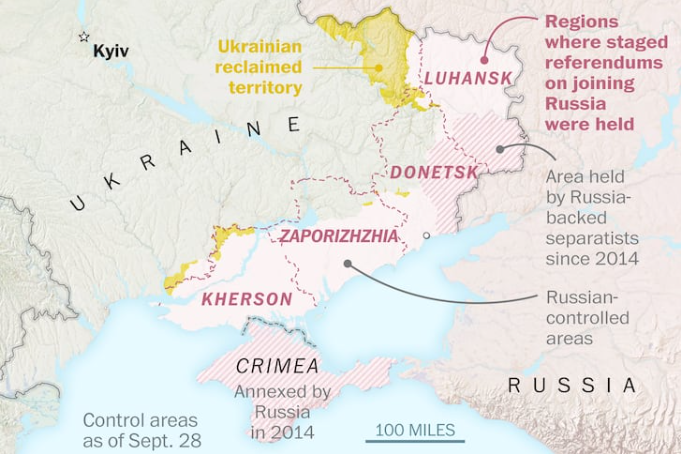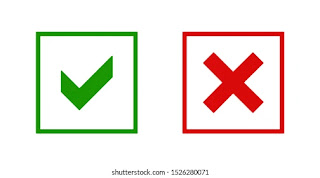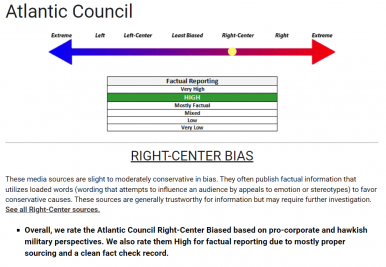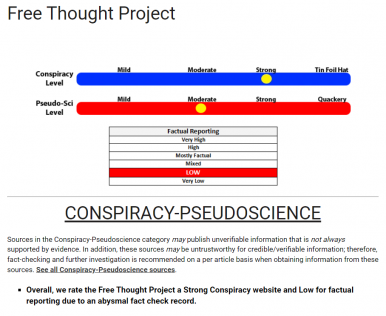Pragmatic politics focused on the public interest for those uncomfortable with America's two-party system and its way of doing politics. Considering the interface of politics with psychology, cognitive biology, social behavior, morality and history.
Etiquette
Friday, September 30, 2022
Fiddly bits of news
Thursday, September 29, 2022
From the radical right attack files: How the GOP wants to protect lies and hate speech
Is This the Beginning of the End of the Internet?Occasionally, something happens that is so blatantly and obviously misguided that trying to explain it rationally makes you sound ridiculous. Such is the case with the Fifth Circuit Court of Appeals’ recent ruling in NetChoice v. Paxton. Earlier this month, the court upheld a preposterous Texas law stating that online platforms with more than 50 million monthly active users in the United States no longer have First Amendment rights regarding their editorial decisions. Put another way, the law tells big social-media companies that they can’t moderate the content on their platforms. YouTube purging terrorist-recruitment videos? Illegal. Twitter removing a violent cell of neo-Nazis harassing people with death threats? Sorry, that’s censorship, according to Andy Oldham, a judge of the United States Court of Appeals and the former general counsel to Texas Governor Greg Abbott.A state compelling social-media companies to host all user content without restrictions isn’t merely, as the First Amendment litigation lawyer Ken White put it on Twitter, “the most angrily incoherent First Amendment decision I think I’ve ever read.” It’s also the type of ruling that threatens to blow up the architecture of the internet. To understand why requires some expertise in First Amendment law and content-moderation policy, and a grounding in what makes the internet a truly transformational technology. So I called up some legal and tech-policy experts and asked them to explain the Fifth Circuit ruling—and its consequences—to me as if I were a precocious 5-year-old with a strange interest in jurisprudence.Techdirt founder Mike Masnick, who has been writing for decades about the intersection of tech policy and civil liberties, told me that the ruling is “fractally wrong”—made up of so many layers of wrongness that, in order to fully comprehend its significance, “you must understand the historical wrongness before the legal wrongness, before you can get to the technical wrongness.” In theory, the ruling means that any state in the Fifth Circuit (such as Texas, Louisiana, and Mississippi) could “mandate that news organizations must cover certain politicians or certain other content” and even implies that “the state can now compel any speech it wants on private property.” The law would allow both the Texas attorney general and private citizens who do business in Texas to bring suit against the platforms if they feel their content was removed because of a specific viewpoint. Daphne Keller, the director of the Program on Platform Regulation at Stanford’s Cyber Policy Center, told me that such a law could amount to “a litigation DDoS [Denial of Service] attack, unleashing a wave of potentially frivolous and serious suits against the platforms.”To give me a sense of just how sweeping and nonsensical the law could be in practice, Masnick suggested that, under the logic of the ruling, it very well could be illegal to update Wikipedia in Texas, because any user attempt to add to a page could be deemed an act of censorship based on the viewpoint of that user (which the law forbids). The same could be true of chat platforms, including iMessage and Reddit, and perhaps also Discord, which is built on tens of thousands of private chat rooms run by private moderators. Enforcement at that scale is nearly impossible. This week, to demonstrate the absurdity of the law and stress test possible Texas enforcement, the subreddit r/PoliticalHumor mandated that every comment in the forum include the phrase “Greg Abbott is a little piss baby” or be deleted. “We realized what a ripe situation this is, so we’re going to flagrantly break this law,” a moderator of the subreddit wrote. “We like this Constitution thing. Seems like it has some good ideas.”Everyone I spoke with believes that the very future of how the internet works is at stake. Accordingly, this case is likely to head to the Supreme Court. Part of this fiasco touches on the debate around Section 230 of the Communications Decency Act, which, despite its political-lightning-rod status, makes it extremely clear that websites have editorial control. “Section 230 tells platforms, ‘You’re not the author of what people on your platform put up, but that doesn’t mean you can’t clean up your own yard and get rid of stuff you don’t like.’ That has served the internet very well,” Dan Novack, a First Amendment attorney, told me.
“A lot of people envision the First Amendment in this affirmative way, where it is about your right to say what you want to say,” Novack told me. “But the First Amendment is just as much about protecting your right to be silent. And it’s not just about speech but things adjacent to your speech—like what content you want to be associated or not associated with. This law and the conservative support of it shreds those notions into ribbons.”
The implications are terrifying and made all the worse by the language of Judge Oldham’s ruling. Perhaps the best example of this brazen obtuseness is Oldham’s argument about “the Platforms’ obsession with terrorists and Nazis,” concerns that he suggests are “fanciful” and “hypothetical.” Of course, such concerns are not hypothetical; they’re a central issue for any large-scale platform’s content-moderation team. In 2015, for example, the Brookings Institution issued a 68-page report titled “The ISIS Twitter census,” mapping the network of terrorist supporters flooding the platform. The report found that in 2014, there were at least 46,000 ISIS accounts on Twitter posting graphic violent content and using the platform to recruit and collect intelligence for the Islamic State.
Wednesday, September 28, 2022
Explain yourself...
This question is mostly for the U.S. crowd, but if outside the U.S., chime in with your country’s political equivalent.
Fill in the blank:
A.) I am a (Democrat, Independent, Republican, other) because ___________________________.
Or, if your “not” reasons dominate, flip the scenario:
B.) I
am not a (Democrat, Independent, Republican, other because
___________________________.
If you can/will, please answer both questions (the “why” and the “why not” of your voting choice).
C.) What guiding political principle(s) are most important to you (e.g., personal and/or social freedoms / rights, economic policies, lower taxes, etc.)?
Thanks for posting and favoriting.
A running debate at Dissident Politics exemplified
Here's a view (four years old) of social media censorship as seen from a Scandinavian POV (the source is a site that calls itself Global Research, "GR").
I would like to see you take apart the specific article I cited, using your renowned critical intelligence.
If so, why? Why is it that places like Global Research or QAnon would be a great place to spend one's time looking in good faith for something of value that cannot be found more easily elsewhere? Just tell me why.
"Global Research" says: "One doesn’t need to look far to understand who the Atlantic Council are and what they stand for : it is a think tank essentially funded by NATO, weapons manufacturers, Middle-Eastern oil-state monarchies, billionaires and different branches of the US military."
So what? Big deal. Fact checker says this about the Atlantic Council:
OK, so it is pro-war biased, but factually accurate. Now we know. We can all use our critical thinking skills to assess whatever it is the Atlantic Council is saying. At least its not making stuff up.
"Global Research" says: "Hence, it should come as no surprise that when the Atlantic Council’s Digital Forensic Research Lab gets down to work weeks before the upcoming midterms, it has little intention of putting a stop to actual disinformation groups and rather silences those that speak a message opposing their own."
Germaine says: "Global Research" cites The Anti-Media and Free Thought Project as examples of shutting down opposing messaging, not disinformation. So I looked and found these:
More crackpot sites. So my critical thinking analysis is that "Global Research" ("GR") is a leftist crackpot site complaining about the crackpottery at other apparently radical right sites crackpot sites. Who cares? Why should anyone care?
"Global Research" says: "Shortly after, Twitter decided to take them down as well, as well as Carey Wedler‘s (editor at Anti-Media) own personal account for literally no reason:"
Germaine's critical thinking analysis on that asks what evidence does "GR" have that Twitter had literally no reason? Since "GR" itself is a crackpot site, why should Germaine accept that allegation as true? "GR" didn't ask Twitter or Carey Wedler why Twitter suspended Wedlers' account, because if it did ask either (1) it would have said so, or (2) was incompetent and thus not trustworthy for omitting to say so. (see the critical thinking there? that was a fun one!)
"GR" says: "Many of the pages taken down had already been targeted back in 2016 by the McCarthyist webpage PropOrNot.not, endorsed by the Washington Post, in an effort to arbitrarily mark pages that they believe somehow are connected to Russian propaganda efforts. Already back then it was clear that many of the pages targeted by PropOrNot were leftist, anti-war pages, and almost none of them had anything to do with Russia whatsoever. The Washington Post finally later on retracted their article endorsing PropOrNot, but this didn’t help the fact that these websites had now already been flagged as propaganda by many."
Germaine says: WTF!! WaPo makes a mistake and then retracts it, but gets blasted by "GR" for having made a mistake. But on the other hand, "GR's" vaunted Carey Wedler says in her own video that she makes mistakes but when she does she retracts them.
"GR" says: "RT Reporter Rachel Blevins with 70,000 followers on Facebook and investigative journalist Dan Dicks with 350,000 followers also both saw their accounts taken down overnight – both were very critical of mainstream journalism."
Germaine responds:
1. For Christ's sake, Blevins was an RT reporter, i.e., a professional Russian propagandist.
2. Who the hell is Dan Dicks? search . . . . . search . . . . find a relevant hit, read it. Here's the hit -- Dicks runs the web site "Press For Truth":
3. Just because Dicks was critical of mainstream journalism does not mean that his journalism (or whatever it is) has merit. Maybe he is pissed at the MSM because he was got good enough to get a MSM job as a reporter. The "GR" article does not support its implied but not stated allegation that Twitter unfairly banned his crackpot ass from its platform. (see the logic in that analysis? there really is logic in it, honest)
So, I could probably go one and on ripping the "GR" article to pieces, sentence by sentence. But sadly, I've already spent well over two hours of my precious time discovering what I strongly suspected would be the case right from the get go. Namely I suspected that based on its MBFC rating, the "GR" article would be mostly crap not worth spending my time on. That suspicion turned out to be true.
I don't resent or regret the time I spent on this. Three reasons. First I respect you, (interlocutor). Second, I hope this example of how to do my brand of critical thinking and analysis is instructive to anyone who reads it. Third, I hope this exercise shows at least some basis in fact and reason for my reluctance to spend my time with sources that get poor fact accuracy ratings. That includes sites that engage in non-trivial amounts of pseudoscience or crackpot conspiracy theory.
Am I being unfair here? Are my facts and analysis insufficient to support my distrust in sources that get poor fact and/or reasoning ratings? Do all fact checkers just produce nonsense that everyone should ignore?
For starters, there's no pseudoscience in the article. It's an assessment of the bias to be found in the work of the Atlantic Council. If you want to undercut it, show me how we can dismiss the notion that the AC is biased. It's a creation of NATO, and thus approx as objectively reliable as anything we might read from Tass. They are not the right org to be censoring comments on YouTube.
So let's try it again. Take a look at the article and find any lies or distortions you can describe to me. Maybe I'll learn something from you. But in my view, if Facebook wanted an outside party to come in and censor everyone's comments, they'd be better off to employ an outfit like Aljazeera for the job. They are in my view accurate, insightful and highly unbiased.
For starters, there's no pseudoscience in the article. It's an assessment of the bias to be found in the work of the Atlantic Council.I know. I didn't say there was any pseudoscience in it. You said I said that, I didn't.
It's a creation of NATO, and thus approx as objectively reliable as anything we might read from Tass.I know it is biased. I was explicit about that in my comments. I even cited the MBFC rating of it and its analysis of the bias being pro-war and pro-corporation. But, unlike GR, the Atlantic Council doesn't lie much and has a high fact accuracy rating. Like I said in my comments: "OK, so it is pro-war biased, but factually accurate. Now we know. We can all use our critical thinking skills to assess whatever it is the Atlantic Council is saying. At least its not making stuff up."
They are not the right org to be censoring comments on YouTube.I agree. But here's some more of my critical thinking. First, Twitter bans Twitter accounts. The Atlantic Council does not ban Twitter accounts. The GR article strongly implies that, but it's a lie of omission. The Atlantic Council’s Digital Forensic Research Lab looks for disinformation sites, it does not run Twitter or ban accounts.
Second, look at the sites that Twitter banned, The Anti-Media and the Free Thought Project. Both are crackpot liar sites. Even if the Atlantic Council did influence Twitter's decision to ban them, what's wrong with that?
Yes, Al Jazeera would probably be less biased than the Atlantic Council, but at least the AC doesn't lie. As far as I am concerned, let pro-right biased and pro-left biased and pro-truth disinformation seekers feed honest information to Twitter and Facebook so that more liar accounts get removed. What's wrong with that? If liars want to lie to the public, let them do it on their own rotten, immoral sites.
And with humans, there is no such thing as completely unbiased. But when humans sincerely respect facts and truth, it is harder for their biases to render their content as morally rotted as what Anti-Media, Free Thought Project and Press for Truth sites spew on the public.
So let's try it again. Take a look at the article and find any lies or distortions you can describe to me.I did point out a lie in this comment. Specifically, GR lied by omission that the Atlantic Council bans Twitter accounts it dislikes. That is false.
But it's more than just lies that kills the credibility of the GR article. For example, the GR article asserts: In total, 559 pages and 251 personal accounts were instantly removed from the platform, for having “consistently broken our rules against spam and coordinated inauthentic behavior” according to Nathaniel Gleicher, Facebook’s Head of Cybersecurity and former White House National Security Council Director of Cybersecurity Policy under Obama. This is but one of similar yet smaller purges that have been unfolding in front of our eyes over the last year, all in the name of fighting “fake news” and so called “Russian propaganda”.
That is loaded with deceptive rot. First, 559 pages and 251 accounts is less than puny. There are far more rotten accounts and pages than that, over a billion according to a reliable source. IMO, what the GR article relies on constitutes essentially no effort by Facebook to deal with divisive disinformation and lies. The propagandist who wrote the GR article doesn't know what he is talking about. He is using motivated reasoning to concoct a nutty narrative.
Second, GR's assertion that Facebook's puny account bans and page take downs are all in the name of fighting “fake news” and so called “Russian propaganda”, directly implies that there is no such thing as fake news or Russian propaganda. That is so wrong that one could, and I do, consider it to be two blatant, insulting lies. If the author intended something else, he should have made his intent clear. That leaves three main possibilities, (i) the author is incompetent as a writer, (ii) the author is intentionally deceptive and mendacious, or (iii) a combination of the two. GR certainly failed to edit clarity into that, so GR deserves the exact same analysis, i.e., it is incompetent, mendacious or both.
I doubt we are going to come to much or any agreement here. But, at least you can see why we disagree. There is value in that.
But to move from the general to the specific, don't you think if I have found and posted an article in support of some thesis, you might at least glance at the article itself? You might just find it contains something of value. Why, you might even find it does not represent the sort of worldview you assume everything ever published by GR shares. (For the record, I do not compulsively consume every morsel appearing in GR. Some of its articles I find weak and unconvincing. And in fact I rarely even read it. I was googling for articles relevant to Facebook + AC when I found this.)
At any rate, I see I've wasted too much of your valuable time already. So I'll just ask you this brief question: How objective and unbiased do you feel the work of the Atlantic Council to be? And please don't just look in the back of the book, to see how your source rates them. Just give me your off-the-cuff opinion. Your gut sense.
Thanks in advance. I hope we both end up finding this to be a productive engagement.
And you expose the core of that ignorance when you admit there's a whole world of info-- info you present yourself as being qualified to comment on-- that you just never read?I am presenting myself as able unwilling to rely on unreliable sources. There is an ocean of politics out there. I can only consider ~0.00001% of it.
.... don't you think if I have found and posted an article in support of some thesis, you might at least glance at the article itself?
Yes, I probably would have read it, because I like, trust and respect you. You earned and deserve that. After you asked, I read the GR article.
How objective and unbiased do you feel the work of the Atlantic Council to be?
Yeah, this was productive.
MICHELLE OBAMA 2024
https://finance.yahoo.com/news/michelle-obama-2024-her-real-114800692.html
Isn't this some scary shit? Who knew? 😏
Tuesday, September 27, 2022
Just a thought
Came across this tidbit this morning:











